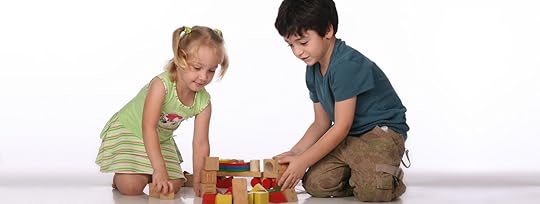Developing Emotional Maturity
 When my son entered kindergarten, I expected all sorts of good things. For several years he had participated in pre-school, community programs, outdoor play and summer camps. Despite this, his first week was a total disaster.The teacher met with me daily to recount the problems: he did not play well with others and hit a child who encroached on his alone time. He was bored discussing the calendar and weather. He asked to use the washroom too often. His older sister had been in kindergarten the year before and enjoyed a seamless transition. Where was I going wrong?Physical milestones are easier to gauge than emotional ones. So, what can parents do to ensure their child has the necessary emotional maturity to enter school?Teach your child to use their words. Instead of acting out, help them verbalize what they’re feeling. For example, “I want to try that, but I am afraid.” Show them how to apologize for misbehaving and how to correct the situation. When another child dominates a game, have them suggest, “Let’s take turns.” These sorts of phrases can be encouraged through play dates and role-play in the early years.Clearly explain the new schedule to your child. Disruption of routine can be challenging for young ones, especially for those with unique circumstances such as anxiety or those in the Autistic Spectrum. Begin talking to your child ahead of time when life changes are coming up. Explain pick-up, drop-off and where they will be going. Prepare backpacks and clothing the night before. Discuss new experiences. This provides an opportunity for your child to ask questions and feel secure in attempting something unfamiliar.Encourage a love of learning. New experiences provide various opportunities to learn skills such as being a good sport, interacting with other children, imaginative play and striving to do your best. Talk openly with your child about these moments and share your own memories to reinforce how you have been in their shoes and learned to enjoy something new. Use positive affirmations to let them know when they’ve done well.
When my son entered kindergarten, I expected all sorts of good things. For several years he had participated in pre-school, community programs, outdoor play and summer camps. Despite this, his first week was a total disaster.The teacher met with me daily to recount the problems: he did not play well with others and hit a child who encroached on his alone time. He was bored discussing the calendar and weather. He asked to use the washroom too often. His older sister had been in kindergarten the year before and enjoyed a seamless transition. Where was I going wrong?Physical milestones are easier to gauge than emotional ones. So, what can parents do to ensure their child has the necessary emotional maturity to enter school?Teach your child to use their words. Instead of acting out, help them verbalize what they’re feeling. For example, “I want to try that, but I am afraid.” Show them how to apologize for misbehaving and how to correct the situation. When another child dominates a game, have them suggest, “Let’s take turns.” These sorts of phrases can be encouraged through play dates and role-play in the early years.Clearly explain the new schedule to your child. Disruption of routine can be challenging for young ones, especially for those with unique circumstances such as anxiety or those in the Autistic Spectrum. Begin talking to your child ahead of time when life changes are coming up. Explain pick-up, drop-off and where they will be going. Prepare backpacks and clothing the night before. Discuss new experiences. This provides an opportunity for your child to ask questions and feel secure in attempting something unfamiliar.Encourage a love of learning. New experiences provide various opportunities to learn skills such as being a good sport, interacting with other children, imaginative play and striving to do your best. Talk openly with your child about these moments and share your own memories to reinforce how you have been in their shoes and learned to enjoy something new. Use positive affirmations to let them know when they’ve done well. Be patient. Each child is unique. Change takes time. However, if you suspect something is amiss or if you just want to track your child’s development, visit Family Centre in Lethbridge to learn about their “Ages and Stages” assessments as well as other resources available within the community. In my case, I met with Family Centre staff who assured me my son was adept and bright but under-stimulated by some of the activities. This aided the teacher in better addressing his needs, making adjustments that helped him develop the maturity required to succeed. This past year, he finished his first Education Practicum at university. Ironically, he was placed in kindergarten.Lethbridge Early Years Coalition believes that children deserve a safe and nurturing childhood. Science tells us that the early years (from birth to age five) are the most critical period in a child’s development. A child’s early experiences and environments have lifelong impacts on everything from mental and physical health to success in school, work and relationships.For more information about Lethbridge Early Years, visit http://www.lethbridgeearlyyears.ca or contact lethbridgeearlyyears@gmail.com
Be patient. Each child is unique. Change takes time. However, if you suspect something is amiss or if you just want to track your child’s development, visit Family Centre in Lethbridge to learn about their “Ages and Stages” assessments as well as other resources available within the community. In my case, I met with Family Centre staff who assured me my son was adept and bright but under-stimulated by some of the activities. This aided the teacher in better addressing his needs, making adjustments that helped him develop the maturity required to succeed. This past year, he finished his first Education Practicum at university. Ironically, he was placed in kindergarten.Lethbridge Early Years Coalition believes that children deserve a safe and nurturing childhood. Science tells us that the early years (from birth to age five) are the most critical period in a child’s development. A child’s early experiences and environments have lifelong impacts on everything from mental and physical health to success in school, work and relationships.For more information about Lethbridge Early Years, visit http://www.lethbridgeearlyyears.ca or contact lethbridgeearlyyears@gmail.com
Published on June 22, 2018 14:57
No comments have been added yet.



